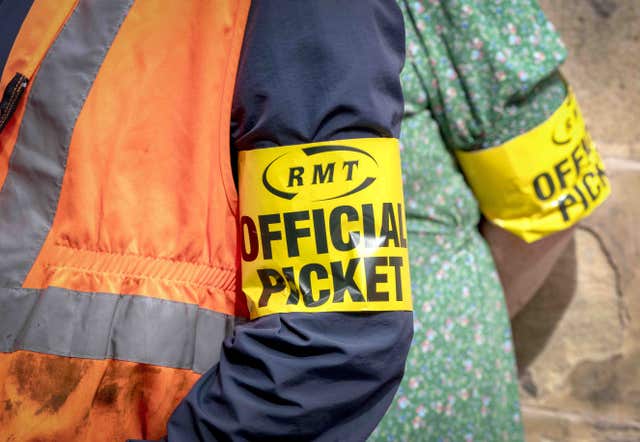National rail dispute ‘the fight of our lifetime’, say RMT leader
Mick Lynch said negotiations over pay, jobs and conditions were the toughest the union had ever been involved in.

A union leader has described the national rail dispute as the “fight of our lifetime”.
Mick Lynch, general secretary of the Rail, Maritime and Transport union (RMT), said negotiations over pay, jobs and conditions were the “toughest” the union had ever been involved in.
RMT members have staged three strikes over the row which crippled services.
No new strikes have been set and talks have been continuing between the union, Network Rail and the train operators.
“They are seeking to rip up working practices and conditions, agreements that protect our members and in doing so they will drive up unsocial hours, work fatigue and occupational ill-health.
“And they are seeking to make our members poor with below-inflation pay offers which do not take into account the cost-of-living crisis.
“Since that strike action, which was fantastic, they have not diluted their stance. At Network Rail they are ramping up their demands.
“We went to the train operators, and they put on the table that virtually every rail worker would be re-contracted on a new contract of employment and a new set of terms and conditions.

“So, this is as serious as it gets. It is the fight of our lifetime and of our generation.”
The RMT general secretary criticised those who blame workers for the cost-of-living crisis in Britain, arguing that wage demands from trade unions were not the cause of inflation.
He said: “It is a myth put round by the establishment that workers’ wages are the cause of inflation. It is the profit making and protecting the wealth of the super-rich that is responsible for inflation.
“We have not got a wage price spiral – wages are lagging a long way behind prices and it is the job of the trade unions to ensure wages catch up.”
A Department for Transport spokesperson said: “Far from ‘cutting back’ on safety regimes, we are determined to use technology to make our railway even safer for passengers and staff alike.
“Many trains already operate as driver only, with technology ensuring safety is not compromised while allowing guards to be used in other, more useful roles.
“As we strive to deliver a modern, resilient railway fit for the 21st century, it’s only right we look at ways to ensure it is as efficient and financially sustainable for all that use it.”





